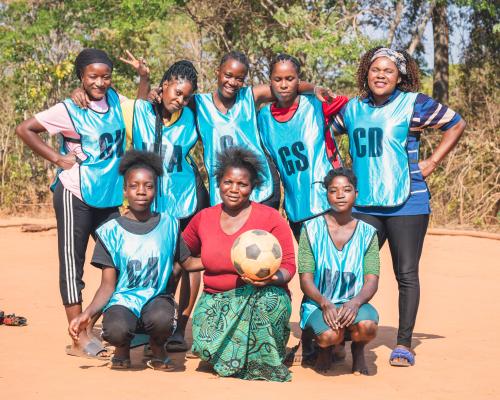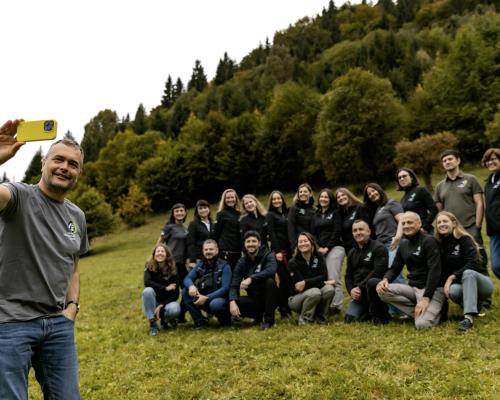Frankfurt, April 24, 2025 — In its 42nd year, the Bruno H. Schubert Foundation is awarding one of Germany’s most prestigious environmental prizes—the Frankfurt Conservation Award (Bruno H. Schubert Preis)—this evening in Frankfurt. The award in the category of “Applied Conservation” goes to Ha Thang Long, PhD, who leads the FZS project “Forest Conservation in Vietnam’s Central Highlands.”
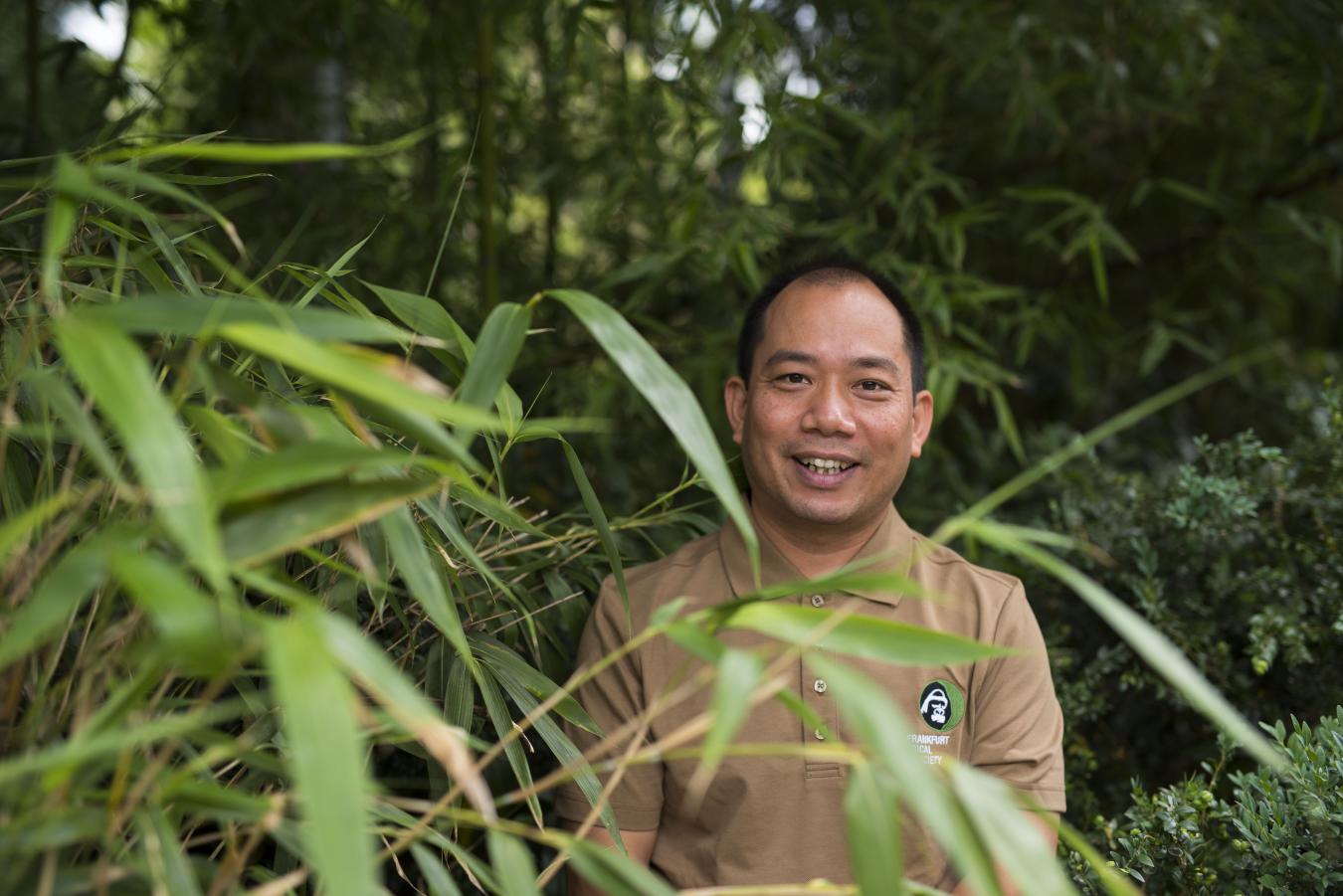
Frankfurt Conservation Award 2025 (Bruno H. Schubert-Preis) goes to FZS Project Leader Ha Thang Long from Vietnam
When people talk about tropical rainforests and endangered primates, Vietnam may not be the first country that comes to mind. Today, about 20% of Vietnam’s land is forested—but only a third of that is true primary forest. Historically, tropical rainforests covered over two-thirds of the country, but due to the Vietnam War and human activities like logging and agriculture, much of that forest has been lost.
One person who has dedicated his entire professional life—and his heart—to protecting what remains of these forests is Ha Thang Long, PhD. He is being honored this evening at the Senckenberg Museum in Frankfurt with the Frankfurt Conservation Award for his outstanding commitment to conservation.
“Vietnam is among the top three most biodiverse ecosystems in Southeast Asia—with tropical forests, marine areas, and coastal habitats. Many species here are endemic, meaning they are found nowhere else. Preserving Vietnam’s biodiversity is essential to the well-being of people across the region,” says Ha Thang Long.
Vietnam is among the top three most biodiverse ecosystems in Southeast Asia—with tropical forests, marine areas, and coastal habitats. Many species here are endemic, meaning they are found nowhere else. Preserving Vietnam’s biodiversity is essential to the well-being of people across the region.
Also honored with the Frankfurt Conservation Award 2025 are Dr. Rosie Trevelyan of the Tropical Biology Association (in the category of Education) and Joji Cariño of the Forest Peoples Programme (in the category of Research).
The three laureates were nominated by the award’s partner institutions: Goethe University, the Frankfurt Zoological Society (FZS), and the Senckenberg Society for Nature Research—in recognition of their work in research, education, environmental protection, and applied conservation. Each award is endowed with €15,000.
Vietnamese biologist Ha Thang Long, PhD, has worked in hands-on conservation for over 27 years and has been associated with FZS since 1999. He currently leads the FZS project “Forest Conservation in Vietnam’s Central Highlands.” He is being honored for his dedication to the protection of Cuc Phuong National Park, Kon Ka Kinh National Park, and the Kon Chu Rang Nature Reserve, along with their populations of endangered and critically endangered primates.
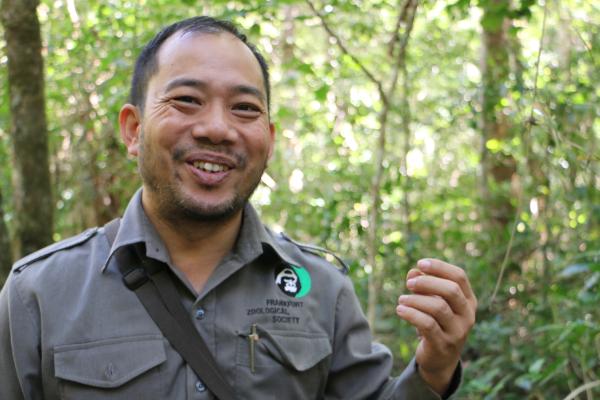
“I’ve witnessed the loss of species and the destruction of ecosystems in Vietnam. I’m determined to stop it—and to help protect and restore the country’s nature and wildlife so it can be safe and beautiful once again”, says Ha Thang Long.
As a biology student, Ha Thang Long spent every free moment in the field. He played a key role in the observation and population counts of rare Delacour’s langurs (Trachypithecus delacour) and Cat Ba langurs (Trachypithecus poliocephalus) in northern Vietnam. In 2001, he discovered the largest known population of the critically endangered grey-shanked douc langur (Pygathrix cinerea) in the Central Highlands, and successfully raised funds to protect its habitat.
I’ve witnessed the loss of species and the destruction of ecosystems in Vietnam. I’m determined to stop it—and to help protect and restore the country’s nature and wildlife so it can be safe and beautiful once again.
Coming from a scientific background in species conservation, Ha Tang Long recognized early on that only protecting natural habitats could truly preserve Indochina’s unique wildlife—especially as 22 out of 24 primate species native to Vietnam are classified as threatened. This realization steered his career toward supporting protected areas as sanctuaries for wildlife in densely populated Vietnam.
He contributed to the research and management of several protected areas, including Cuc Phuong National Park, where he helped establish the Endangered Primate Rescue Center (EPRC). He later shifted focus—on behalf of FZS—to Vietnam’s Central Highlands. His work was instrumental in the 2021 designation of the Kon Ha Nung Biosphere Reserve by UNESCO.
Thanks to his efforts, poaching and illegal logging have been significantly reduced, and areas like Kon Ka Kinh and Kon Chu Rang have become strongholds for douc langurs and gibbons. These successes were made possible through strong partnerships with political leaders at all levels, collaboration with protected area authorities, and close relationships with local communities like the Bahnar ethnic group.
Ha Tang Long and his team also launched environmental education programs that have played a key role in raising awareness and community support for conservation.
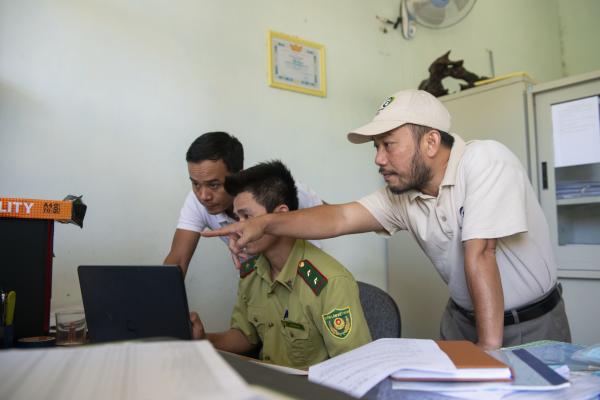
He shares his extensive experience in passionate, often humorous lectures with young biology students. Since 2007, hundreds of students have participated in his primate conservation training courses at Da Nang University. In 2012, alumni of these programs founded their own NGO, GreenViet, which has become a key player in protecting endangered species and their habitats in Central Vietnam.
Ha Thang Long has remained true to his passion and purpose throughout his career: to document Vietnam’s biodiversity and protect it—together with the people who live there.
Contact
Dagmar Andres-Brümmer, Zoologische Gesellschaft Frankfurt
andres-bruemmer@zgf.de
Tel. +49 (0)160 6176701
Photos for media use
-
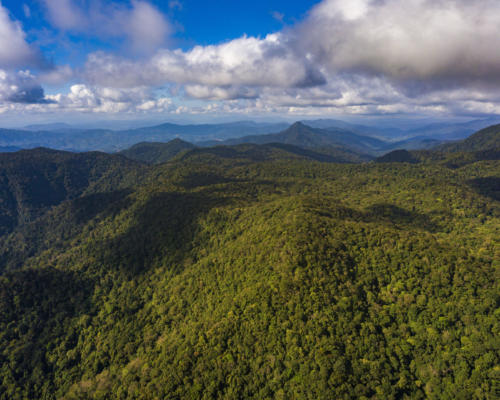 Vietnam
Vietnam
Kon Ka Kinh and Kon Chu Rang






